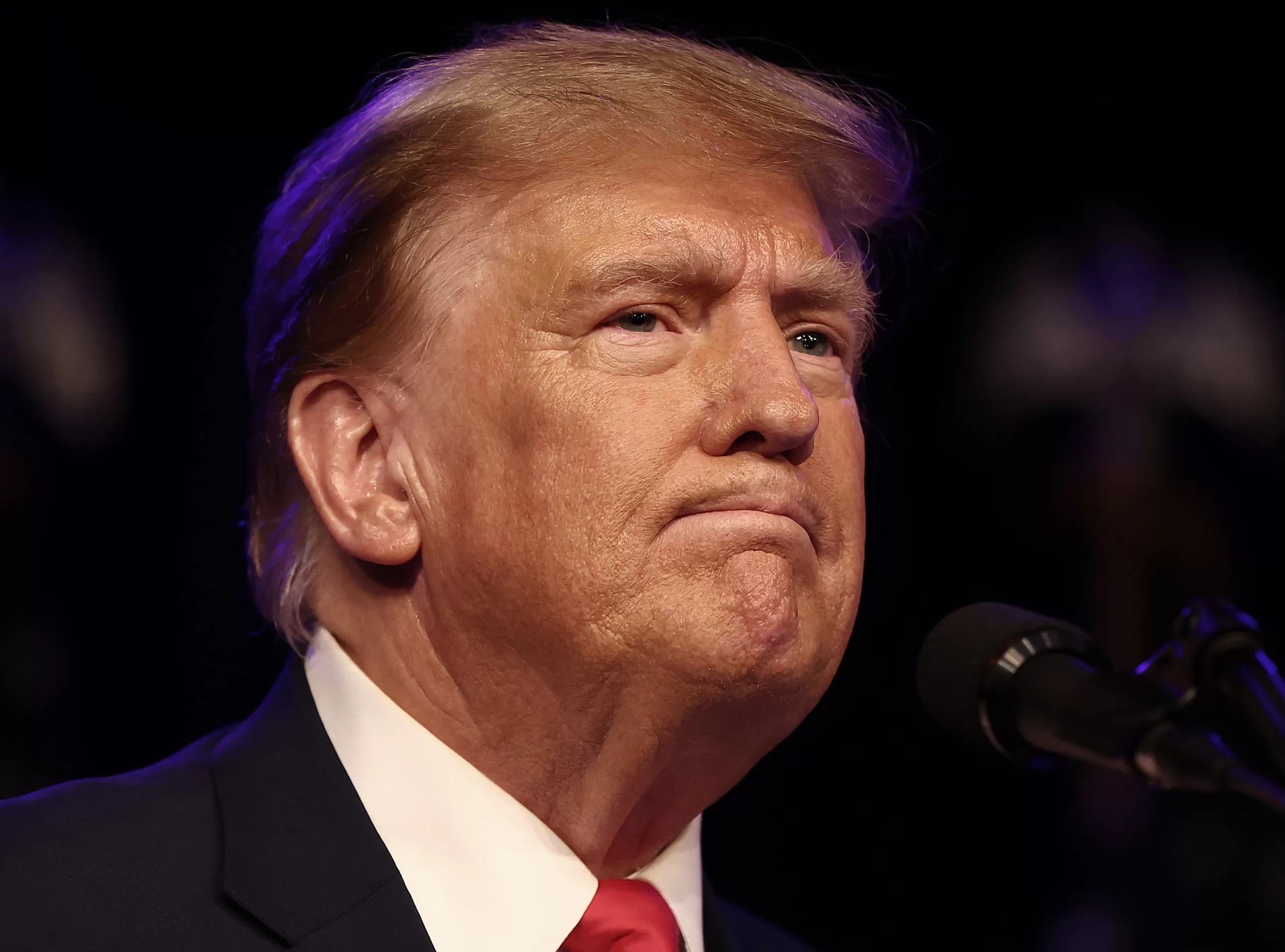So far, he’s had some success in muddling his 2024 criminal calendar. His other three cases — in
Georgia,
Florida and
Washington, D.C. — have all been bogged down in delays or potential derailments of various kinds. In fact, at the same time as Thursday’s hearing in Manhattan, Trump’s judge in Atlanta will hold a separate hearing that threatens to upend that case.
It remains unclear if the Georgia, Florida or Washington cases will proceed to trial before Election Day. That leaves the New York case, which was
the first of the four to be filed last year and has so far remained comparatively on track.
It is also seen as the criminal case that poses the least amount of risk to Trump, both politically and in terms of potential prison time.
Manhattan District Attorney Alvin Bragg has charged him with 34 felony counts of falsifying business records connected to hush money payments to Stormy Daniels. Bragg has portrayed the hush money as a form of election interference, because, through an intermediary, Trump allegedly paid Daniels to keep her from going public with her affair allegations during the critical final weeks of the 2016 campaign, and Trump never reported money connected to the payoff on campaign finance documents.
Still, many legal observers see the New York charges as less grave than Trump’s three other criminal cases: two for attempting to subvert the 2020 election results and one for hoarding classified documents after he left office.
And even if Trump is convicted in New York, the punishment may not derail his bid to return to the White House. Though Trump couldn’t pardon himself of the charges (because they are brought under state, not federal, law), legal experts say judges rarely sentence first-time offenders to any prison time for the crime of felony falsification of business records.
Of course, whether the case goes to trial at all depends on how Merchan rules on Thursday on Trump’s motion to dismiss the indictment. Trump’s lawyers have argued that the charges should be thrown out on a number of grounds, including that Bragg’s office “selectively targeted” Trump for prosecution and that the indictment was delayed so as to interfere with Trump’s presidential campaign.
But perhaps of greatest interest to legal experts is the argument by Trump’s lawyers, Todd Blanche and Susan Necheles, about whether prosecutors can connect the hush money payments to a federal election under the theory that the payments constituted an illegal campaign donation.
In order for prosecutors to upgrade the falsification of business records charges from misdemeanors to felonies, they must show that the actions were taken with the intent to commit or conceal another crime.
In their motion to dismiss, Trump’s lawyers said Bragg’s office offered four potential crimes that could serve as the underlying crime, all of which Trump’s lawyers disputed as invalid. The one tied to a federal election, however, has not previously been tested in the courts, so Merchan could be the first New York state judge to assess it.
If Merchan denies Trump’s motion to dismiss the indictment and maintains the March 25 trial date, the lawyers are likely to discuss some of the mechanics of the trial, including jury selection.
In Trump’s most recent trial, a civil case in which the writer E. Jean Carroll sued him for defamation, U.S. District Judge Lewis Kaplan ordered an anonymous jury, citing Trump’s “repeated public statements” about Carroll and his verbal lashings of court officials and other people involved in his other cases. Kaplan’s order meant that no one — including the lawyers, Trump, Carroll or the judge — could know the jurors’ identities.
The jury in that case
ordered Trump to pay Carroll $83.3 million in damages. Before the jurors delivered the verdict, Kaplan gave them a recommendation: “My advice to you,” he said, “is that you never disclose that you were on this jury.”
